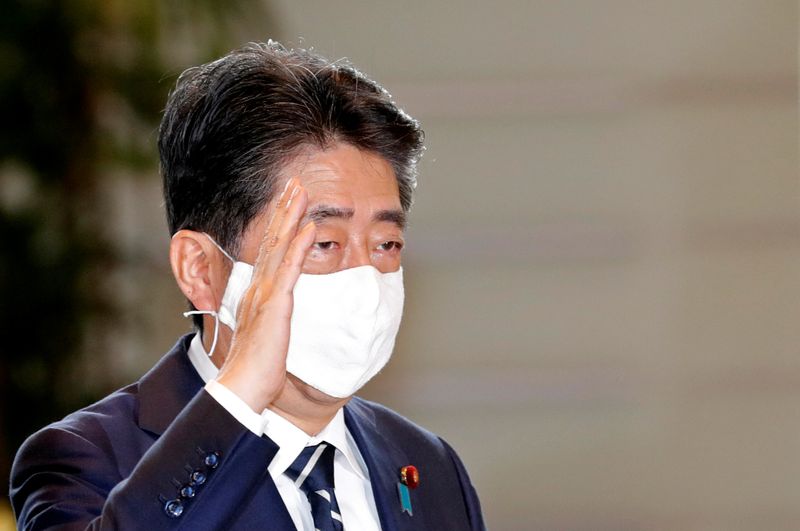TOKYO (Reuters) - Former Japanese Prime Minister Shinzo Abe visited the controversial Yasukuni Shrine for war dead on Saturday, his first visit since December 2013, after refraining from doing so for most of his term to avoid angering China and South Korea.
Abe announced the visit on his official Twitter account along with a photo of himself at the shrine, just days after Yoshihide Suga succeeded him as Japan's leader. Japan's longest-serving leader stepped down, citing health problems.
The shrine is seen by Beijing and Seoul as a symbol of Japan's past military aggression because it honours 14 Japanese wartime leaders convicted as war criminals by an Allied tribunal as well as war dead.
Abe had only visited the shrine in person once during his last tenure as prime minister but regularly sent offerings via an aide during the shrine's spring and autumn festivals.
His pilgrimage to the shrine in 2013 sparked outrage in South Korea and China and an expression of "disappointment" from the United States.
Washington and Tokyo have become close security allies in the decades since the war's end but its legacy has left scars in East Asia.
Ties between Tokyo and Seoul have remained strained due to bitter memories of Japan's 1910-1945 colonisation of Korea, including a dispute over compensation for Koreans forced to work on Japan's sites during wartime. Tokyo says the matter was settled by a 1965 treaty normalising relations.
